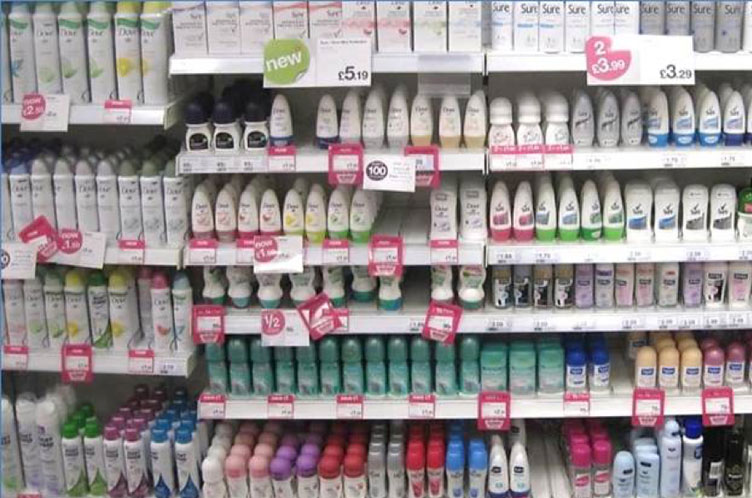When I Google words like sweat and sweat odour, I find many results for both deodorants and antiperspirants. The words are used synonymously, but there is a big difference in the way they work and how good they are at counteracting sweat and odour. There is more confusing than helpful. So, here I will explain the difference between the two.
Deodorants
Just about everyone uses deodorants, whether or not they have a problem with sweating. Deodorants do not stop sweat production. They mask the odour of sweat . So you can still get wet sweat stains.
Today deodorants are part of our daily hygiene routine, and are only intended to counteract the smell of sweat for up to 12 hours. Deodorants simply counteract the formation by bacteria of foul-smelling waste products. So, deodorants are suitable for people who sweat only a little and who can stay fresh all day with a scent.
Antiperspirants If we want to sweat less in a limited area (max. 10% of the body), say under the arms, I advise you to use antiperspirant. Antiperspirants prevent sweat (sweat odour, moisture and sweat stains) by reducing sweat production in the sweat glands.
Antiperspirants usually contain aluminium chloride, which forms a ‘gel plug’ in the sweat gland, thereby preventing sweat from reaching the surface. Depending on the efficiency of the antiperspirant, the effect lasts from a few hours to several days.
Not sweating under your arms is not dangerous . You just sweat marginally more elsewhere on the body. A plug is formed at the top or bottom of the sweat gland.
You can also get ultra-efficient antiperspirants that work for many days. This means you should not apply them more than 2-3 times a week. You can still take a shower – Everyday hygiene does not hamper the effect of the antiperspirant.
Antibacterial effect Deodorants have a mild antibacterial effect and reduce unpleasant body odour caused by bacteria from the skin surface.
The antibacterial effect of antiperspirant is much stronger.
Fragrance and perfume
Deodorants come in many different versions, both with and without fragrance. If we smell of sweat, this smell gets mixed with perfume creating a somewhat unattractive ‘cocktail’.
Some of the most effective antiperspirants do not contain fragrance. If you want a scent, you can usually use an antiperspirant under your scented deodorant or perfume.
Application:
You apply deodorant as often as you need to.
It is best to use antiperspirant in the evening before bedtime so that it has time to work at night when the sweat glands are least active. Never apply antiperspirant to more than 10% of the body, and read the instructions carefully before using an antiperspirant.
Conclusion Deodorants are suitable for people who sweat only a little and can stay fresh all day with a scent.
If you feel bothered by sweat and sweat odour, I advise you to buy a good antiperspirant. This also applies if you just want to make sure you do not sweat or smell of sweat in special situations or at events that are stressful, or where it is particularly important for you not to sweat.
Perspirex I advise you to try Perspirex Antiperspirant or Perspirex hand and foot lotion, which stops sweat on hands and feet. Many of our customers find that our Perspirex range ‘changes their lives’.

